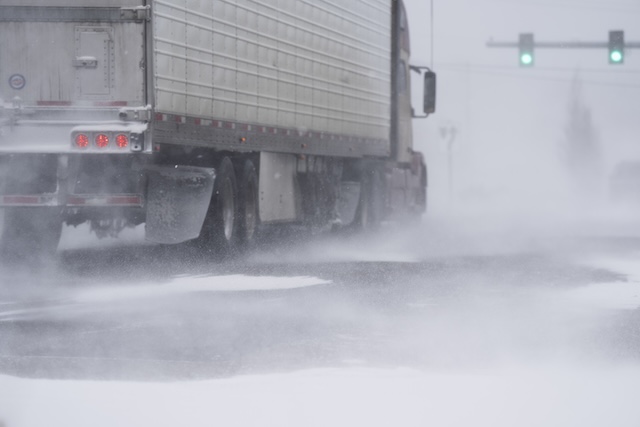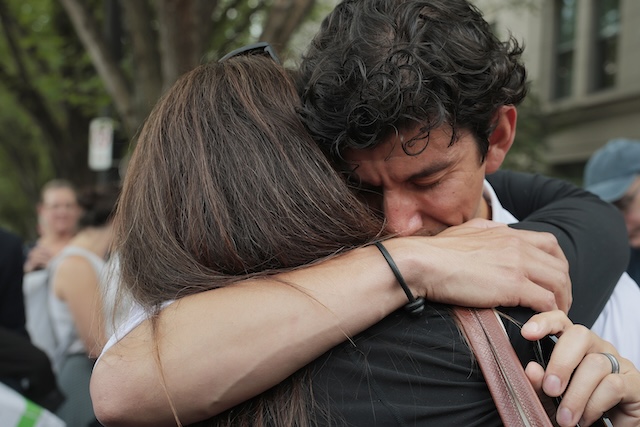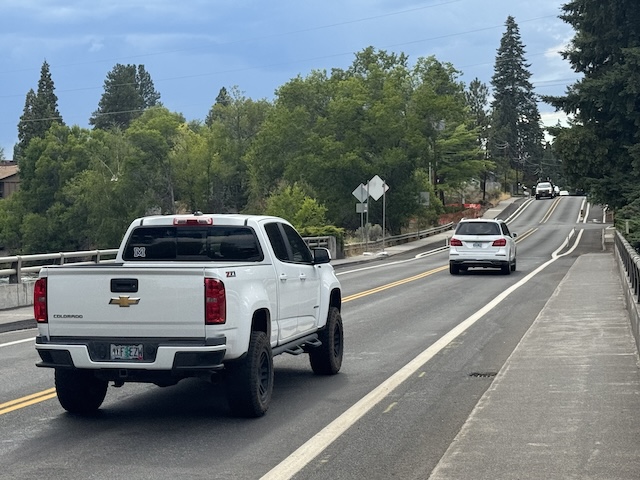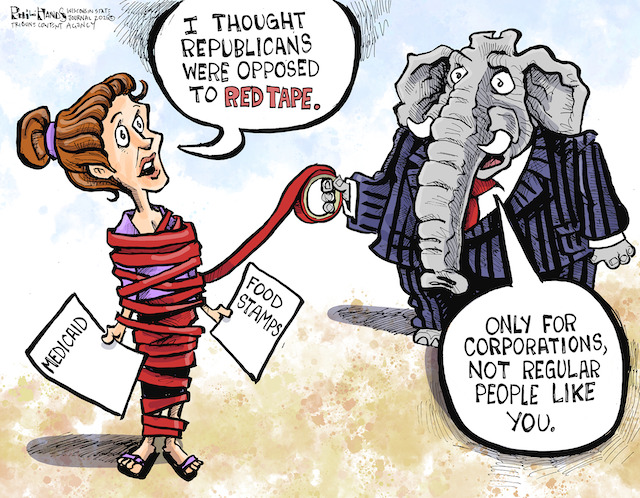Guest column: Transportation budget fix must be passed, longer term solution needed
Published 7:30 am Wednesday, July 30, 2025

- Snow blows across the road in Portland . (AP File Photo/Jenny Kane)
A wildfire prompts an evacuation in Sisters and Highway 20 is the designated route out. A crash on Highway 97 in Redmond occurs, and one lane needs to be opened to prevent traffic backups. A winter storm blows in and skiiers head up the road from Bend to Mt. Bachelor, needing to get there safely. In all of these cases, our communities rely on the Oregon Department of Transportation for critical maintenance and operations that keep us safe and keep traffic flowing. Imagine instead that Sisters residents are on their own in an evacuation, or Highway 97 is closed completely because a full crew can’t keep a lane open, or the road to Mt. Bachelor is shut down for lack of plowing staff.
Our cities face unsustainable pressure on our local transportation systems due to growing populations, declining gas tax revenue, disappearing federal grants, and increased costs of maintenance and projects. With limited ways to raise local revenue, we need the state to be a full partner in ensuring our shared transportation system is safe and reliable for everyone.
It is not an option for the Legislature to fail to pass a funding package that addresses immediate and critical transportation needs throughout the state. The Governor has called a special session to do that. Though it is not the complete solution we feel Oregonians need, we ask the full Legislature to show up on August 29th and pass the proposed framework.
Trending
We support the proposed budget fix because it maintains the critical 50/30/20 split that sends half of transportation funds raised to cities (20%) and counties (30%). Critically, the $650 million framework will allocate $325 million for local governments across the state in the 2025-27 biennium. That means half of what Oregonians are paying in new revenue can be used for operations and maintenance on our own local city and county streets. The framework also modestly increases funding for transit agencies like Cascades East Transit, and corrects out-of-balance fees for the freight industry. Finally and importantly, there will be new accountability measures for ODOT. Public dollars flowing through one of our largest state agencies must be spent efficiently and transparently, and requiring new performance audits and direct accountability of ODOT’s director to the Governor is a start.
Many questions will remain even after passage of this near-term solution. It does not fund many key state programs our cities have historically used to increase safety on our local roads, like the Safe Routes to School, Great Streets and Community Paths programs. We need a strong commitment from the governor and the Legislature to get back to work right away on finding long-term solutions for funding these programs. Additionally, none of the revenue generating taxes and fees proposed are indexed to inflation, setting us up for future shortfalls when costs inevitably increase but revenue doesn’t. And the question of geographic equity remains, with mega projects in the Metro area that were promised in the past seeing massive price tag increases, while safety projects on Highway 97, 20, and 126 remain unfunded.
Whether it’s a series of smaller conversations or one big one, our state leaders need to buckle down to figure out how we properly fund a critical state infrastructure system that Oregonians interact with daily. Our residents deserve a safe, well-maintained transportation system no matter if they are driving up a mountain pass or down the road to the grocery store. We will continue to do our part as city leaders, and it’s time for the state to do its part too. Passing a new revenue measure in a special session is not the way we would like the Legislature to regularly do business, but without it, safety and travel reliability in our region will suffer.
Jennifer Letz is mayor of Sisters. Ed Fitch is mayor of Redmond. Melanie Kebler is mayor of Bend.








